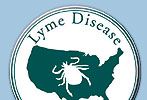

 |
 |
|
HOME | ABOUT US | AFFILIATES | CONTACT US | Doctor Referral | DONATIONS | LEGISLATION | ORDER BROCHURES |
|
|
Lyme Disease Association, Inc. |
|
|
"Reprinted with
permission from Best Practices in School Health, a
publication of Federal News Services, Inc. For more
info, please visit www.fednewsonline.com"
In-service Ideas for Lyme Disease We spoke with Pat Smith about two areas where school nurses can use their clinical expertise and presentation skills to develop in-services on the subject of Lyme disease. She made these recommendations: For Teacher/School Staff Training: Although I am not a “mandate" advocate in education, New Jersey’s law requiring inservice for teachers who have Lyme students is effective when used. However, I think it should require all staff members to attend. States with professional development programs for teachers can include Lyme as a course. Program content: A 40-45 minute program explaining the symptoms & ramifications of the disease can be very effective. Often it is not necessary to address accommodations with staff after they hear what the disease does. How many staff know that a study out of Columbia University show a drop in 22 points in IQ in a Lyme student, which was corrected after antibiotic treatment? How many know that some of their ADD students may need to be evaluated for Lyme disease? How many know that psychiatric manifestations can include OCD, hallucinations, violent outbursts, seizures? How many know Lyme can produce blindness or death? How many have known of successful suicide attempts in young people with Lyme because they were ridiculed about their disease? I am sad to say I know about them and try to make those deaths “meaningful” by showing how this can happen with something often perceived as benign as Lyme disease. Teachers and administrators need to be reminded that they may see a homebound child at the mall, at an event, and even, riding a bike a little in the street. These children have conditions, which leave them without any energy one minute, and feeling somewhat OK the next, but not having the stamina to be in school. Being homebound can cause depression, as can the disease itself. If they have a good moment, they need to participate in life. For Peer Sensitivity Awareness Training: This is difficult since children are often unkind to those who are different, and sometimes are afraid they may “catch” the disease themselves. They “forget” their friend who is out of school for months or years at a time, they may think they are “lucky” not to have to go to school. Classmates may think their friend is “faking it” because when they see him/her, they look normal. These myths need to be dispelled. Program content: Interesting assemblies about Lyme can be presented in school where discussions of ticks, etc. can lead to presentations of symptoms and what a friend might be experiencing. At lower school levels, individual classroom discussion may be necessary about PICC lines, pumps and other ways a child is receiving medication so he/she is not perceived as strange while taking IV medication. At the high school level, the honor society or clubs can undertake awareness projects which not only educate about the disease but can also incorporate something where members travel to the home of a student on home instruction for tutoring or socialization. In my daughter’s four years at home, it was the only contact she had with the outside world and it only happened because I pressed for it in her last year out of school. Along the same lines, videos can be made of school events, a fun activity for students to do, and they can give those videos along with short notes to the absent classmate, bringing both sides a little closer. Students can be reminded to invite an absent classmate to a birthday, which he/she may be able to attend for some period of time. |
Lyme Disease Association, New Jersey, Copyright 2010 - All Rights Reserved
|
|
HOME PAGE | ABOUT US | CODE OF ETHICS | CONTACT US | CREDENTIALS | DISCLAIMER & PRIVACY | MAKE A DONATION |